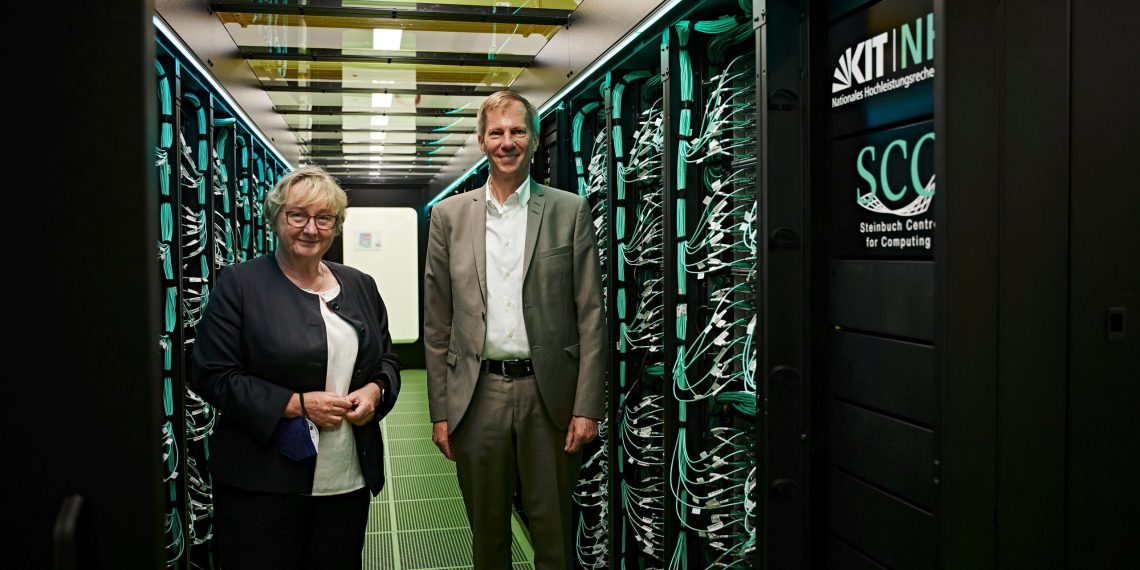The new supercomputer of the Karlsruhe Institute of Technology (KIT) is one of the 15 fastest computers in Europe and one of the 13 most energy-efficient in the world. The enormous computing power of the Karlsruhe high-performance computer, HoreKa for short, makes new findings possible, for example in climate, energy and medical research. Today (July 30, 2021), Theresia Bauer, Baden-Württemberg’s Minister of Science, Research and the Arts, handed over the 15-million-euro machine to the scientific community.
“I am delighted to be able to inaugurate the new supercomputer today. With HoreKa, we are not only strengthening Baden-Württemberg as a research location, but also making an important contribution to the German scientific ecosystem as part of the ‘National High Performance Computing’ alliance. High-performance computing has become an indispensable part of cutting-edge research and we are proud to be able to actively shape this development with forward-looking investments.”
- Theresia Bauer, Minister of Science
“Creating knowledge to meet the challenges for our society and our environment is an essential part of our mission at KIT,” said KIT President Professor Holger Hanselka. “Enormously powerful supercomputers are an indispensable tool for our scientists when it comes to working out the scientific results required for this purpose as quickly as possible and developing solutions. In addition, the computer provides our students with opportunities for research experiences they can’t get anywhere else.”
“The impressive computing power enables us to make many new discoveries in climate, energy, and materials research as well as in the life sciences,” says KIT Vice President for Research Professor Oliver Kraft. “After all, the faster high-performance computers process data, the more detailed and reliable the simulations that can be made with them. However, the computer does not only set new standards in speed, but also in energy efficiency — this is also crucial in supercomputing and for responsible research.”
World class also in energy efficiency
In total, a peak performance of 17 petaFLOPS — 17 quadrillion computing operations per second — can be achieved, which is roughly equivalent to the performance of around 150,000 laptops. The 15 million supercomputer is thus one of the fastest in Europe. It currently ranks 52nd on the twice-yearly Top 500 list of the world’s fastest computers, while also being world-class in terms of energy efficiency. “Supercomputers require a lot of energy, but this energy is used much more efficiently than in conventional PCs and laptops,” says Dr. Jennifer Buchmüller, head of High Performance Computing at KIT’s Steinbuch Centre for Computing. In terms of energy efficiency, the product currently ranks 13th in an international comparison.

















